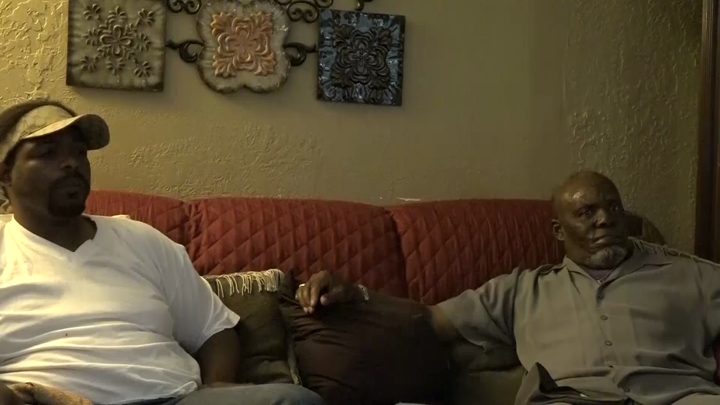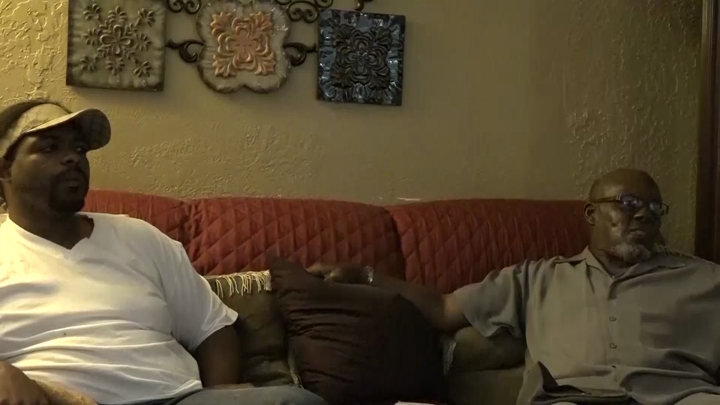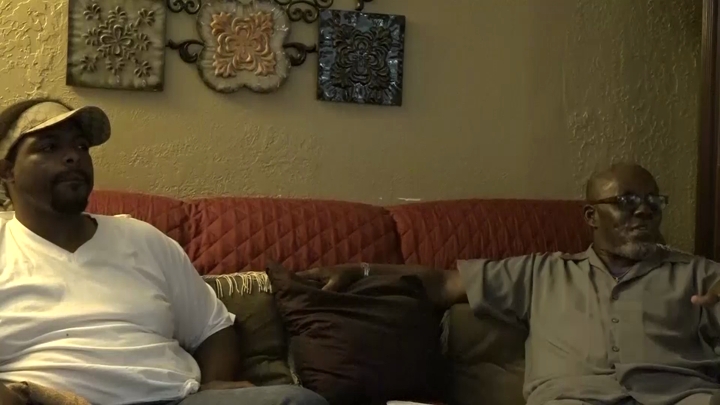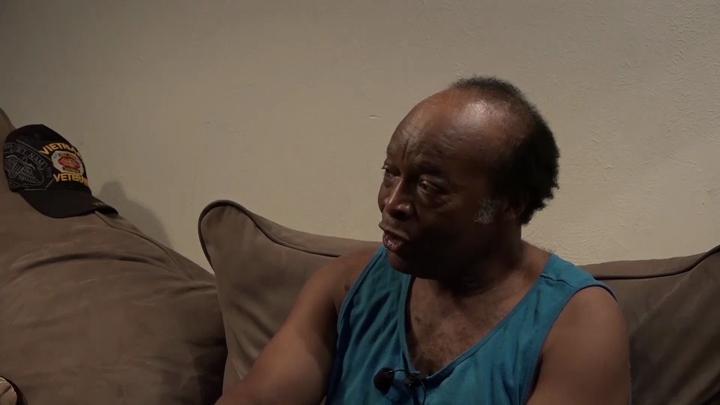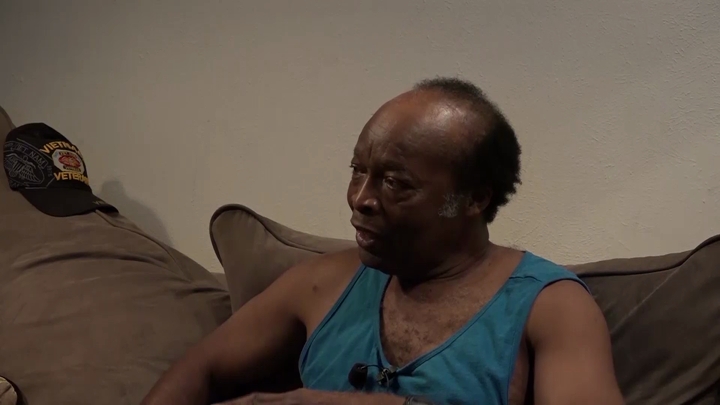Calyen / Student Activism
sign up or sign in to add/edit transcript
Interviewer: When you were doing your activism in high school, were you still at Booker T. Washington or were you at Conroe? Calyen: Washington. Interviewer: You were at Washington. So, this would have had to be sixty— Calyen: Sixty-five. Interviewer: Sixty-four, 1965. So, what did y’all do? Calyen: Well, we just marched and had out some signs. Went to the places that we couldn’t go in and— Interviewer: Do you remember the names of some of the places? Calyen: Walgreen’s Pharmacy. Carter’s Drugs. Scott’s Pharmacy. All of those had a little eating counter where you could go in and have lunch or have sandwich, ice cream sundae— Interviewer: So, what would your marches entail? Calyen: Usually, they’d start from Washington school and we’d have little chants. We’d sing one of those—I can’t think of the song— Interviewer: “We shall overcome.” Calyen: “We shall overcome.” We’d sing that. “We shall overcome” and some of the gospel songs. “Go down Moses” and protest in front of the stores. Interviewer: How many people would you say were part of these demonstrations? Calyen: Maybe a hundred. Interviewer: Wow, and you said sixty-four, sixty-five. And what was the response to hundreds of students walking downtown? Calyen: People would gather outside and look and see what we were doing. Some of them would say something derogatory. Some of the people would empathize with you. Interviewer: What was the response of the business owners that you were picketing? Calyen: Most of them were pretty much all set in their ways— Interviewer: So, they just ignored it? Calyen: So, they just ignored it. Interviewer: How many marches would you say y’all did between 1964 and 1965? Calyen: Three. Interviewer: Do you remember the month that these happened? Spring, winter? Calyen: Yeah, during the springtime. Interviewer: Of 1964? Calyen: Sixty-four yeah. During spring and summer. Interviewer: So, the first one happened in spring of 1964? The second one happened in? Calyen: Sixty-five. Interviewer: Spring again? And the third one. You mentioned one summer. Calyen: Same year. Interviewer: Summer of 1965. Were there any police response there? Calyen: They were there just to keep the peace. Would tell you break it up, go one back home— Interviewer: And what was the response to the black community to the youth during these demonstrations? Calyen: Everybody there was a teenager or a young adult. It was pretty much a fun thing. Interviewer: There was no telling y’all not to do this, not any kind of— Calyen: Some of the religious leaders would tell you don’t get up there and get in no trouble— Interviewer: Did your mother support your actions? Calyen: Yeah. Interviewer: Why do you think that was the case? Calyen: I guess parents want something better for their kids than life that they had, so.
| Interview | Interview with Henry Calyen |
| Subjects | Community Organizations |
| Direct Action › Marches | |
| Student Activism | |
| Direct Action › Protests | |
| Race Relations › Racial Slurs | |
| Family › Parents | |
| Tags | Carter's Drug Store, Conroe, TX |
| Scott's Pharmacy, Conroe, TX | |
| Walgreens Pharmacy, Conroe, TX | |
| Booker T. Washington Junior High School, Conroe, TX | |
| sign up or sign in to add/edit tags | |
| Interview date | 2016-07-06 |
| Interview source | CRBB Summer 2016 |
| Interviewees | Calyen, Henry |
| Duration | 00:03:33 |
| Citation | "Student Activism," from Henry Calyen oral history interview with , July 06, 2016, Conroe, TX, Civil Rights in Black and Brown Interview Database, https://crbb.tcu.edu/clips/3412/student-activism-2, accessed March 05, 2026 |


